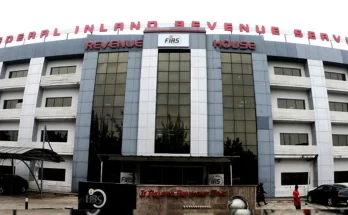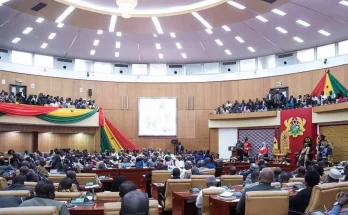- FIRS moves to expand revenue base and enforce compliance under new fiscal regime
Nigeria Enforces 10% Withholding Tax on Short-Term Investment Interest. The Federal Inland Revenue Service (FIRS) has directed banks, stockbrokers, and financial institutions to begin deducting a 10% withholding tax (WHT) on interest earned from short-term investment instruments, marking a decisive shift in Nigeria’s tax enforcement strategy.
The new rule applies to treasury bills, corporate bonds, promissory notes, and other financial papers, which have historically been among the most attractive investment options for both institutional and retail investors due to their low risk and liquidity.
A New Era in Investment Taxation
In a circular signed by FIRS Executive Chairman, Dr. Zacch Adedeji, the agency emphasized that all interest payments on short-term securities must now have tax deducted at source on the date of payment.
“Tax shall be deducted from all interest payments on investments in short-term securities on the date of payment at the applicable rate,” the circular stated.
Institutions responsible for making these payments are expected to remit the deducted tax to FIRS no later than the 21st day of the following month.
The directive reinforces the provisions of Sections 78(1) and 81(1) of the Companies Income Tax Act (CITA) and the 2024 Withholding Tax Regulations, which collectively empower FIRS to enforce compliance on income earned from investment instruments.
Government Bonds Remain Exempt
FIRS clarified that interest earned on Federal Government bonds will remain exempt from withholding tax, in line with Nigeria’s policy of encouraging sovereign debt participation and supporting fiscal liquidity.
The exemption is consistent with the government’s incentive framework designed to attract long-term investment into infrastructure and capital market development.
However, the directive will affect all other forms of interest-bearing securities, meaning corporate issuers, discount houses, and individual investors must now adjust to the new regime.
Taxpayers Entitled to Credits
According to the circular, investors or entities from whom the tax is withheld are entitled to tax credits equivalent to the amount remitted, except where such deductions are considered final.
This system, FIRS explained, ensures transparency and accountability while preventing double taxation, particularly for institutions that already operate under formal accounting structures.
Tax experts note that this mechanism also strengthens audit trails and aligns Nigeria’s practices with global standards in financial reporting and taxation.
Impact on Investors and Market Liquidity
Analysts say the 10% levy could slightly reduce the net yield on short-term investments such as treasury bills and commercial papers, which are popular among fund managers seeking liquidity and safety.
While the immediate effect may be a marginal dip in returns, experts believe the long-term impact will be positive for Nigeria’s fiscal stability.
Financial economist Charles Sanni observed that the move “reinforces the government’s commitment to broadening the tax base and reducing overreliance on oil revenues.”
He added that “this measure is not just about raising revenue—it’s also about ensuring that all income-generating assets contribute their fair share to national development.”
Compliance and Enforcement
Dr. Adedeji warned that failure to comply with the directive will attract penalties and interest in line with existing tax laws.
“All relevant interest payers are required to comply with this circular to avoid penalties and interest as stipulated under Nigerian tax law,” he said.
The agency has also begun integrating the policy into its TaxPro Max platform, ensuring automatic tracking and reporting of withholding tax deductions across the financial system.
This digital integration reflects FIRS’s broader shift toward technology-driven compliance, a cornerstone of the new tax reforms signed into law in June 2025.
See Also: Nigeria’s Capital Gains Tax Reform Sparks Concern Among Foreign Investors
Context: Aligning with Broader Fiscal Reforms
The new withholding tax directive comes shortly after the signing of four major fiscal legislations — the Nigeria Tax Act (NTA) 2025, the Nigeria Tax Administration Act (NTAA) 2025, the Nigeria Revenue Service (Establishment) Act (NRSEA) 2025, and the Joint Revenue Board (Establishment) Act (JRBEA) 2025.
These laws aim to harmonize Nigeria’s fragmented tax structure, improve coordination among revenue agencies, and expand compliance coverage across sectors.
With the introduction of the new rule on short-term interest income, FIRS is signaling a broader intent to capture passive income sources that have historically remained under-taxed.
What This Means for the Financial Market
Market watchers believe that while the policy might introduce short-term adjustments for investors, it could enhance fiscal transparency and contribute significantly to Nigeria’s non-oil revenue growth.
Institutional investors are expected to reassess their portfolio strategies to balance returns with compliance, while corporate issuers may adjust pricing on future securities to offset tax costs.
In the long term, experts say this reform could make Nigeria’s tax system more predictable and investor-friendly, especially when combined with ongoing efforts to simplify filing, automate audits, and eliminate double taxation.
Conclusion
The enforcement of a 10% withholding tax on short-term investment interest marks another bold step by FIRS to modernize Nigeria’s tax regime and strengthen public revenue.
If effectively implemented, the policy could not only enhance compliance but also foster greater equity in taxation, ensuring that all income streams—from wages to investment returns—contribute fairly to national development.




